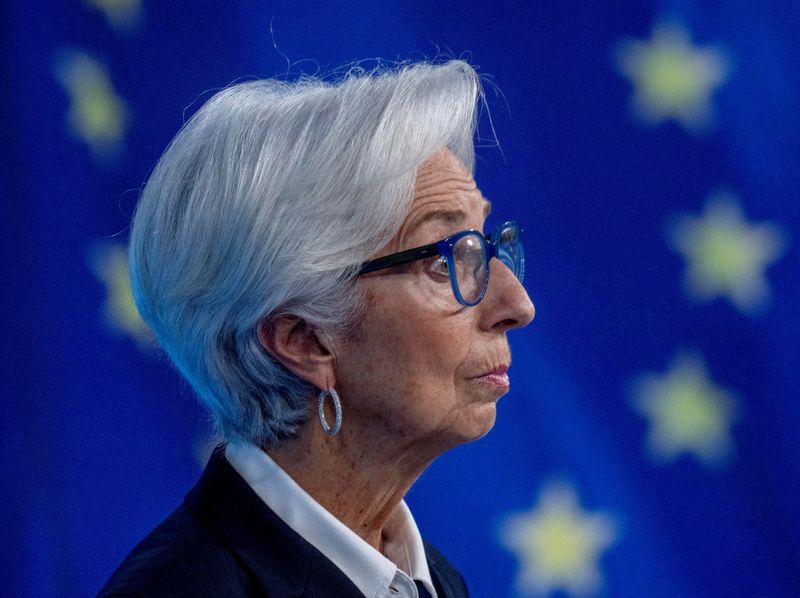By Scott Kanowsky
Investing.com -- The European Central Bank is expected to raise interest rates further over its "next several meetings" in a bid to tamp down soaring inflation, according to ECB president Christine Lagarde.
Speaking at a hearing of the European Parliament's Committee on Economic and Monetary Affairs, Lagarde said these hikes will help dampen demand, which would theoretically cool red-hot consumer price growth.
Lagarde added that higher borrowing costs will "guard against the risk of a persistent upward shift in inflation expectations." The ECB's baseline estimates for annual Eurozone inflation have been revised up significantly, with the central bank now seeing the figure at 8.1% in 2022, 5.5% in 2023, and 2.3% in 2024.
Inflation rose to an all-time high of 9.1% year-on-year in August, boosted in particular by surging energy prices stemming from Russia's decision to clampdown on key gas exports in response to Western sanctions following the outbreak of the war in Ukraine. Economists estimate that prices in the region will expand by a new record of 9.7% this month.
"Price pressures are spreading across more sectors, in part owing to the impact of high energy costs across the whole economy," Lagarde told lawmakers in Brussels.
"The risks to the inflation outlook are primarily on the upside, mainly reflecting the possibility of further major disruptions in energy supplies."
The depreciation of the euro, which has fallen below parity with the dollar as investors fret about the outlook for the Eurozone economy, has also added to inflationary pressures, Lagarde said.
Meanwhile, Lagarde predicted that wage growth, although contained at the moment, will eventually accelerate to "compensate" for higher inflation.
She added that economic growth in the currency bloc is expected to slow "substantially" in the coming quarters as inflation, as well as a series of subsequent rate hikes by central banks around the world, lead consumers to rein in spending. A post-pandemic recovery in the services sector is also seen "losing steam."
Finally, uncertainty over the Eurozone's future remains high, Lagarde said, as reflected in a slump in household and business confidence. Earlier on Monday, a monthly survey showed that business sentiment in Germany - Europe's largest economy - had fallen to its lowest level since the early days of the pandemic.
